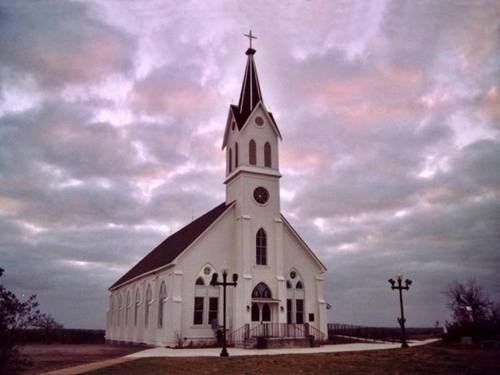
Or is it only a house, the earth its floor? walls and a roof sheltering people, windows for light, an open door?
Does it become a holy place, a sign of grace, a sacrament, a mystery only "when we are gathered here, and know" .... something?
Is it only when we are there to "know God is near" that it acquires some stature beyond that of any other conglomeration of bricks and beams?
The latter take on it is the one that, judging by their behavior within it's confines, most erstwhile Catholics whom I encounter actually espouse.
But the former is the only one possible for anyone who believes in Christ's Eucharistic Presence within the tabernacle.
What is this place where we meet?
And will our demeanor and attitude when we are here give evidence to the unbeliever that we actually believe what we claim to believe?




1 comment:
We had a wedding Friday night for a recently retired parochial school teacher.
The celebrant has an unfortunate habit of beginning Mass with a greeting which, after the audience response he immediately repeats with an "I can't HEEEEAR you!' edge to his voice.
The crowd always dutifully answers louder.
Well, Friday was the first time I'd heard his audience answer in a tone that could be taken for nothing other than sarcasm.
And since a good half of said audience were current or recently graduated Catholic school students, I feel confident in asserting that his behavior, and that of other like-minded clerics, is begetting exactly the sort of behavior one would expect it to produce.
Why sing the Bruckner when there is all that great protestant> theology in our hymnals to sing instead?
Post a Comment